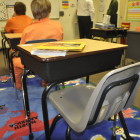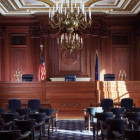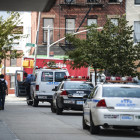
NEWARK, N.J. – Recidivism could be cut and public dollars could be saved if lawmakers lifted a longstanding federal ban on Pell grants to prisoners. Those were some of the key arguments made at Rutgers University last week by a group of academics, criminal justice reformers and formerly incarcerated individuals in a fledgling program meant to serve as a bridge from a youth correctional facility to college. John J. Farmer, Jr., former New Jersey attorney general and now Dean and Professor of Law at the Rutgers School of Law, called the restoration of Pell grants for prisoners “one of the most important dialogues we can have in the context of law enforcement.”
“I think that education in our prisons is the key to preventing recidivism,” Farmer said. Farmer made his remarks Thursday at the Rutgers University Paul Robeson Campus Center during an event titled “Pell Grants and Prison Education: How Pell Grant Access in Prison Transforms Lives.”
Among those who spoke in support of lifting the ban on Pell grants to prisoners was Dallas Pell, daughter of the late U.S. Sen. Claiborne Pell, father of Pell grants. Pell, who is founder of an organization called Pell Grants for Public Safety, said providing education for individuals in prison is a “no-brainer” and “one of the most effective tools we have to make our community safe.”
Pell and various speakers noted how a plethora of studies have repeatedly found that higher education for prisoners significantly reduces their likelihood of returning to prison.









